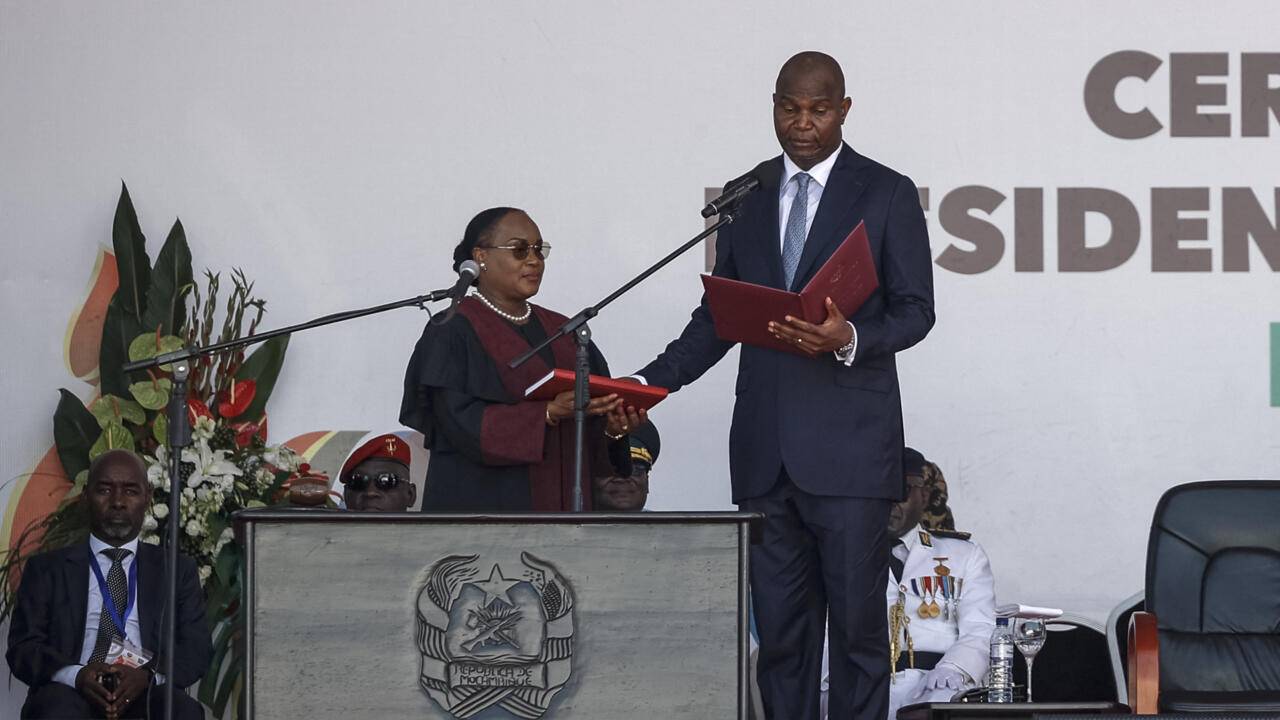Chapo Sworn in as Mozambique’s President Amid Disputed Election
In a contentious political development, Mozambique’s President Filipe Chapo has been sworn in for a new term following a disputed presidential election that has sparked significant controversy. The election, held in October, has been marred by allegations of electoral fraud, voter intimidation, and irregularities, casting doubt on the legitimacy of the results.
President Chapo, representing the ruling FRELIMO party, was declared the winner with a commanding majority, according to Mozambique’s National Electoral Commission. However, opposition parties and international observers have raised concerns about the fairness of the electoral process.
Allegations of Fraud and Irregularities
The main opposition party, RENAMO, and its leader, Ossufo Momade, have rejected the results, accusing FRELIMO of orchestrating widespread voter suppression and ballot manipulation. RENAMO has also pointed to incidents of restricted campaigning and discrepancies in vote tallying as evidence of an unfair election.
Independent election observers, including representatives from the European Union and regional organizations, have corroborated some of these claims. Reports highlighted instances of voter intimidation, biased media coverage, and restricted access for opposition party agents during vote counting.
Momade called the election “a betrayal of democracy†and has demanded an independent investigation into the alleged irregularities.
Swearing-In Ceremony
Despite the controversy, President Chapo took the oath of office in a ceremony held in the capital, Maputo. In his inaugural address, he called for unity and pledged to address the nation’s pressing issues, including economic development, peacebuilding, and tackling ongoing security challenges.
“Now is the time for us to come together as a nation to work towards progress and stability,†Chapo said. “The election is behind us, and we must focus on the future.â€
Political and Security Implications
The disputed election has reignited tensions in Mozambique, a country with a history of political rivalry between FRELIMO and RENAMO. Although the two parties signed a peace accord in 2019, mistrust remains high, and the election fallout could threaten to unravel the fragile stability.
The country also faces significant challenges, including an Islamist insurgency in the northern Cabo Delgado region and economic struggles despite its vast natural gas reserves. Analysts warn that political instability could undermine efforts to address these pressing issues.
International and Domestic Reactions
The international community has expressed concern over the credibility of the election. Several nations and organizations, including the United States, the European Union, and the African Union, have urged Mozambique to ensure transparency and address the allegations of misconduct.
Domestically, opposition protests have begun to emerge, with calls for accountability and electoral reforms. Observers warn that further unrest could destabilize the country if the political grievances are not adequately addressed.
A Path Forward
President Chapo’s administration faces an uphill battle to restore public trust and ensure stability. Experts suggest that engaging in dialogue with opposition parties and implementing electoral reforms are critical steps toward resolving the political crisis.
As Mozambique grapples with this turbulent period, the coming months will be crucial in determining the country’s trajectory, both politically and economically.


